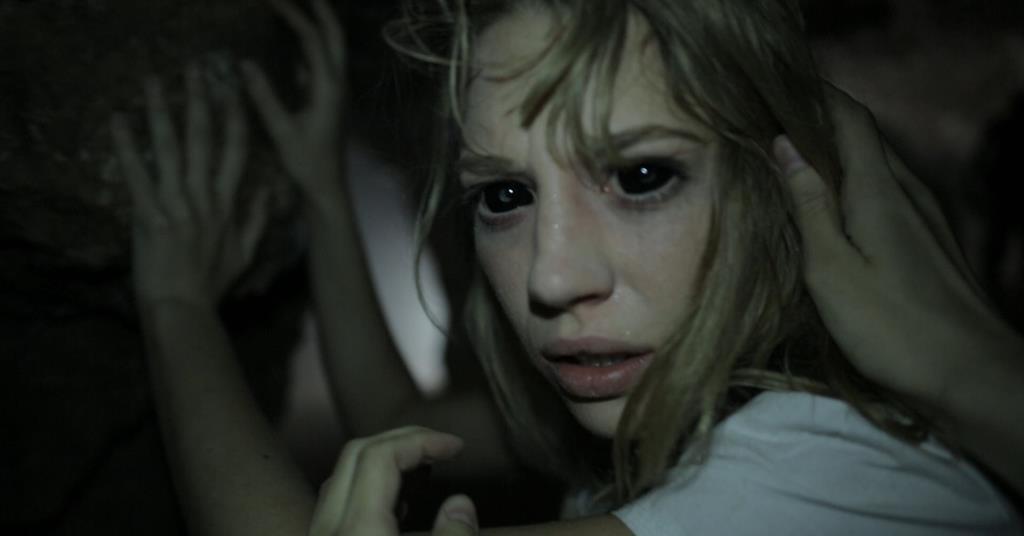“Jeruzalem” (2015) – Apocalyptic Horror in the Holy City
Jeruzalem (stylized as “JeruZalem”) is a 2015 Israeli supernatural horror film written and directed by brothers Doron and Yoav Paz. Set against the haunting backdrop of Jerusalem, the movie blends found-footage horror with biblical mythology, delivering a unique apocalyptic vision through the lens of modern technology. The film’s twist is its use of smart glasses—providing a continuous point-of-view perspective that immerses viewers in a fast-paced, disorienting journey through terror and chaos.
The story begins with a chilling prologue in 1972, where a possessed woman undergoes a multi-faith exorcism. The procedure ends in horror as she reveals demonic features, hinting at an ancient curse tied to the city. Fast forward to the present day, American tourists Sarah and Rachel travel to Israel for a healing escape after Sarah's personal tragedy. Along the way, they meet Kevin, a charismatic anthropology student with a fascination for religious history, who convinces them to detour from Tel Aviv to Jerusalem.

Their journey begins with the expected excitement—exploring the old city, engaging with locals, and enjoying the atmosphere during the Yom Kippur holiday. However, what starts as a vacation soon turns into a nightmare. Unexplained events unfold: strange noises, unsettling encounters, and sudden disappearances. Jerusalem is placed under quarantine by the military as demonic entities begin to rise from beneath the city. What follows is a terrifying descent into the heart of ancient evil.
The film cleverly uses Sarah’s smart glasses as a narrative device, showing real-time updates, facial recognition, and map overlays as she tries to survive. The glasses add a technological edge to the found-footage genre, offering an updated and more interactive aesthetic compared to traditional handheld camera techniques. The immersive visuals, coupled with the claustrophobic city setting, create a sense of constant tension.
One of the film’s strengths is its setting. Filmed on location in Jerusalem, the ancient stone walls, narrow alleyways, and religious landmarks provide an atmospheric stage for the unfolding horror. The blend of myth, religion, and supernatural apocalypse adds a layer of cultural intrigue that sets it apart from more generic horror films.
However, Jeruzalem isn’t without flaws. The character development is minimal, and the plot leans heavily on genre tropes. The mythology introduced—particularly the concept of Jerusalem being one of the three gates to Hell—is intriguing but underexplored. Some viewers may also find the smart glasses gimmick exhausting over time, as it limits camera angles and emotional nuance.

As the story escalates, the protagonists attempt to escape through underground tunnels, where demons lurk and the boundary between the living and the dead blurs. Sarah's journey takes on a personal dimension as she confronts visions of her deceased brother, and the film ends on a tragic, unresolved note—emphasizing that escape from such ancient evil may be impossible.
In conclusion, Jeruzalem is a bold, original entry in the horror genre. While not perfect, it succeeds in blending cultural depth with genre thrills. Its commitment to a unique visual style and religiously charged narrative makes it an interesting watch for horror fans looking for something outside the Hollywood formula.



